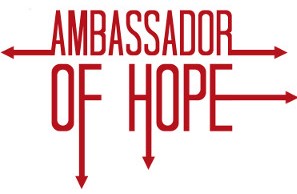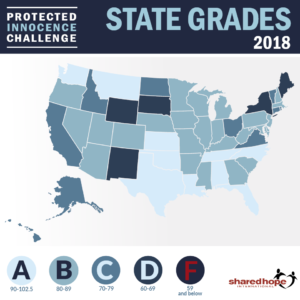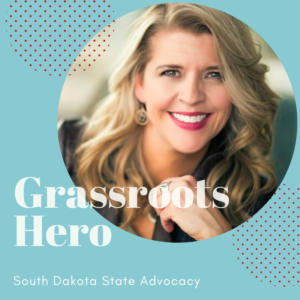 As a part of Human Trafficking Awareness we want to bring you the stories of Ambassadors of Hope, our trained volunteers, who are working hard on the ground to prevent sex trafficking. Follow our series, releasing every Tuesday this month! You can apply to become an Ambassador here.
As a part of Human Trafficking Awareness we want to bring you the stories of Ambassadors of Hope, our trained volunteers, who are working hard on the ground to prevent sex trafficking. Follow our series, releasing every Tuesday this month! You can apply to become an Ambassador here.
[easy-tweet tweet=”Follow our series on Ambassadors of Hope, releasing every Tuesday this month in observance of Human Trafficking Awareness Month!” user=”SharedHope” hashtags=”HumanTraffickingAwarenessMonth”]
Ambassadors show Shared Hope’s Chosen film to educate kids to prevent trafficking. Most youth are completely unaware that sex trafficking occurs in their town, or that it could happen to them or their friends.
Here are a few stories from Ambassadors in the heartland of America about the impact of Chosen presentations:
- One of the major themes of Chosen is to tell someone if something seems wrong. In one Midwestern school, an eighth grade girl was visibly upset and made concerning comments to the Ambassador presenters. They relayed their concerns to the principal and in following up with her to hear her story, he found that she was fine, but was scared because of a situation taking place at a neighbor’s home. Now she knew what she was seeing and was able to talk about it.
- Our Ambassadors received an email after a Chosen showing from the leader of the group they presented to, asking about a girl who had viewed the film and left abruptly, saying nothing. Two weeks after that incident, she was picked up during an FBI sting in Detroit, MI, where she and 15 girls from across the state had been trafficked, and were rescued. When she saw Chosen, she was already involved with a guy and fell for the offer of $1000 to go to dinner with some men. The girls were sold, Saturday through Tuesday, until they were rescued. She is grateful she’s safe now.

- In another school, a girl was so upset she asked the teacher if she could leave the room. The teacher followed her out into the hallway and the girl asked for help – her father had raped her and she had never told anyone. Now she felt safe enough to talk about it and is getting the help she needs.
Chosen gives teens the courage to speak up and tell someone instead of keeping dark secrets. These are just three stories we have from Ambassadors of Hope showing the Chosen video in their community, but there are so many more. During Human Trafficking Awareness month we encourage you to respond by becoming an Ambassador to reach the youth of your community and help end sex trafficking.
 As a little boy, he had no hope. Dreams of a future? Not for this little Nepalese child. School wasn’t an option … and he had to keep his mind focused on merely surviving.
As a little boy, he had no hope. Dreams of a future? Not for this little Nepalese child. School wasn’t an option … and he had to keep his mind focused on merely surviving. .
. On November 16 we released the 2018 Protected Innocence Challenge State Grades. This year, with our new tools, you can be a grassroots hero by sharing your state grade with your legislator! Click the Take Action button to visit our new
On November 16 we released the 2018 Protected Innocence Challenge State Grades. This year, with our new tools, you can be a grassroots hero by sharing your state grade with your legislator! Click the Take Action button to visit our new 
 On the heels of a divisive mid-term election, a new report released today by
On the heels of a divisive mid-term election, a new report released today by  In 2017, South Dakota passed a groundbreaking law to ensure survivors of sex trafficking, ages 16 and under, are protected from criminalization. This effort began two years ago when Becky Rassmussen, Executive Director of Call to Freedom, an awareness-raising and survivor-serving organization, recognized the important perspective she could bring to the legislative process. Seeking to address South Dakota’s D grade, Becky reached out to Shared Hope for technical assistance, and together with local partners, three critical pieces of legislation were passed strengthening the state’s response to child sex trafficking.
In 2017, South Dakota passed a groundbreaking law to ensure survivors of sex trafficking, ages 16 and under, are protected from criminalization. This effort began two years ago when Becky Rassmussen, Executive Director of Call to Freedom, an awareness-raising and survivor-serving organization, recognized the important perspective she could bring to the legislative process. Seeking to address South Dakota’s D grade, Becky reached out to Shared Hope for technical assistance, and together with local partners, three critical pieces of legislation were passed strengthening the state’s response to child sex trafficking.





